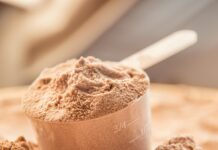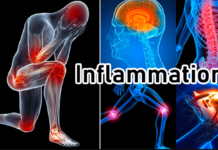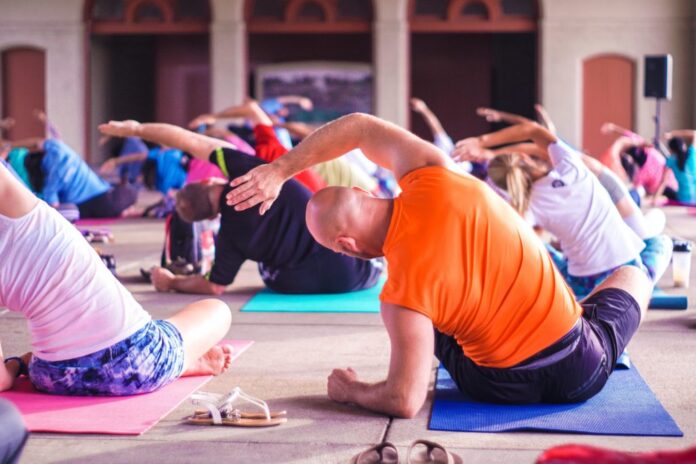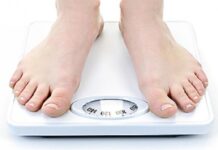You undoubtedly have a hazy idea that Exercise is beneficial for you, and you’ve probably heard that it’s “heart-healthy.” But, if you’re like most people, that’s not enough reason to encourage you to work out on a daily basis. According to my TIME cover story, “The Exercise Cure,” just 20% of Americans obtain the prescribed 150 minutes of strength and cardiovascular physical activity each week, more than half of all baby boomers report no work-out at all, and 80.2 million Americans over the age of 6 are completely sedentary.
That’s terrible news, but recent research indicates that there are plenty of compelling reasons to start moving at any age, including whether you’re sick or pregnant. Indeed, scientists are discovering that Exercise is, in fact, medicine. “There is no pill that comes close to what Exercise can do,” says Claude Bouchard, head of the Pennington Biomedical Research Center in Louisiana. “And even if there was one, it would be prohibitively expensive.”
You may read the entire story for additional information, but here are some of the remarkable things that happen to a moving body.
1. Physical activity is beneficial to the brain.
It has been associated with decreased sadness, improved memory, and faster learning. Work-out appears to be the greatest approach to preventing or delaying the beginning of Alzheimer’s disease, which is a big concern for many Americans.
Scientists aren’t sure why exercise modifies the structure and function of the brain, but it’s an active field of study. So far, they’ve discovered that owing to the protein BDNF, exercise boosts blood flow to the brain, fueling the formation of new blood vessels and even new brain cells (brain-derived neurotrophic factor). BDNF stimulates the creation of new neurons and aids in the repair and protection of brain cells against degeneration. According to a recent study, it may also help individuals focus.

2. You may get happy.
Numerous studies demonstrate that numerous sorts of exercise, from walking to cycling, improve people’s moods and can even alleviate depression symptoms. Exercise causes the production of chemicals in the brain that decrease pain, brighten mood, and reduce stress (serotonin, norepinephrine, endorphins, and dopamine). “For years, we focused almost entirely on the physical benefits of exercise and largely ignored the psychological and emotional benefits of regular physical activity,” says Cedric Bryant, chief science officer of the American Council on Exercise.
3. It may cause you to age more slowly.
Exercise has been demonstrated to increase longevity by up to five years. A recent tiny research reveals that moderate-intensity exercise may halt cell aging. As humans age and their cells cycle repeatedly, their telomeres—the protective caps on the ends of chromosomes—shorten. Researchers obtained a muscle biopsy and blood samples from 10 healthy adults before and after a 45-minute ride on a stationary bicycle to determine how exercise impacts telomeres. They discovered that exercise raised levels of a chemical that preserves telomeres, reducing the rate at which they shorten over time. Thus, exercise appears to decrease aging at the cellular level.
4. It will improve the appearance of your skin.
With increased blood flow to the skin brought on by aerobic activity, the skin receives nutrients and oxygen that support skin health and even speed up wound healing. Anthony Hackney, an exercise physiologist at the University of North Carolina in Chapel Hill, advises persons with injuries to begin moving as soon as possible in order to prevent muscle atrophy and maintain blood flow to the skin. If you practice enough, your skin will produce more tiny capillaries and blood vessels.
The skin serves as a heat dissipation point as well. (See “Why Does My Face Turn Red When I Exercise?” for more details.) According to Hackney, your muscles produce a lot of heat during activity, which you must expel into the environment to prevent your body temperature from increasing too high. The blood carries the heat from the muscle to the skin, where it may be released into the atmosphere.

5. Amazing things may occur in a matter of minutes.
According to new studies, it doesn’t take much activity to get the advantages. “We’ve been curious about the question, ‘How low can you go?'” Martin Gibala, an exercise physiologist at McMaster University in Hamilton, Ontario, agrees. He wanted to see how successful a 10-minute workout might be compared to a standard 50-minute session. He designed a micro-workout that consists of three intense 20-second bursts of all-out, as-hard-as-you-can exertion, followed by brief rests. In three-month research, he compared the brief workout against the conventional one to discover which one was superior.
Despite the fact that one workout was five times longer than the other, the benefits in heart function and blood sugar management were equal. “If you’re willing and able to push hard enough,” Gibala adds, “you can get away with surprisingly little exercise.”

















